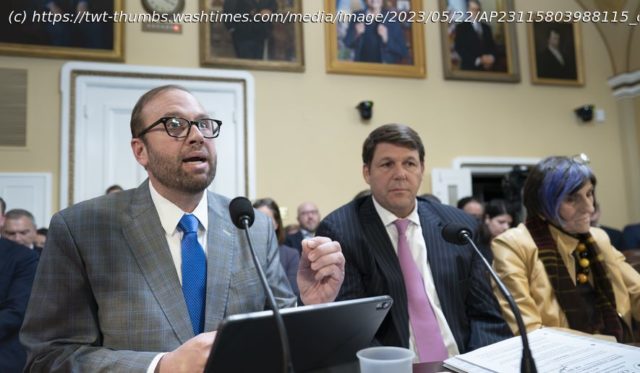Array
Just six days after the bipartisan deal on the debt limit became law, House Republicans proposed a slew of tax cuts, leading to charges of hypocrisy by Democrats in a squabble that shows two clashing visions for the U.S. economy.
GOP lawmakers are pushing deep tax cuts for companies and the affluent as the primary driver for sustaining economic growth, while President Joe Biden and fellow Democrats seek more targeted tax cuts to achieve social goals such as reducing child poverty and shifting to renewable energy that can help the economy in the long run.
The Republican tax cuts for businesses, coupled with an increase in the standard deduction for households, would be funded by wiping out $216 billion in tax breaks over 10 years that Biden signed into law last year to support the development of electric vehicles and renewable energy.
“They should look at this plan as more jobs, higher wages,” said Rep. Jason Smith, R-Mo., chairman of the House Ways and Means Committee. “We are undoing bad policy and replacing it with good.”
White House officials say Republicans’ quick pivot to tax cuts reveals they were never sincere about shrinking deficits during the debt limit debate. Many – but not all – of the tax changes that Republicans last week passed out of the Ways and Means Committee would be temporary.
If the proposed changes related to corporate taxes were made permanent, the Biden administration says, it would undermine the spending cuts that were part of the agreement this month to raise the government’s borrowing authority.
“No sooner did we get a balanced bipartisan agreement to reduce deficits than they came back and put $500 billion of tax cuts for businesses on the table,” said Lael Brainard, director of the White House National Economic Council. “It’s just inconsistent.”
The dispute sets the stage for the 2024 elections and the immediate economic challenges that the winners will face: Lawmakers will need to raise the debt limit again and key portions of the 2017 tax cuts passed under then-President Donald Trump will expire and cause taxes to rise for most households unless they are extended.
Democrats say the latest Republican plan would largely favor companies and better-off households. It would make certain tax breaks for businesses retroactive to 2022. The White House says that tax breaks for what companies did in the past would do little to create the jobs that Republicans are promising.






